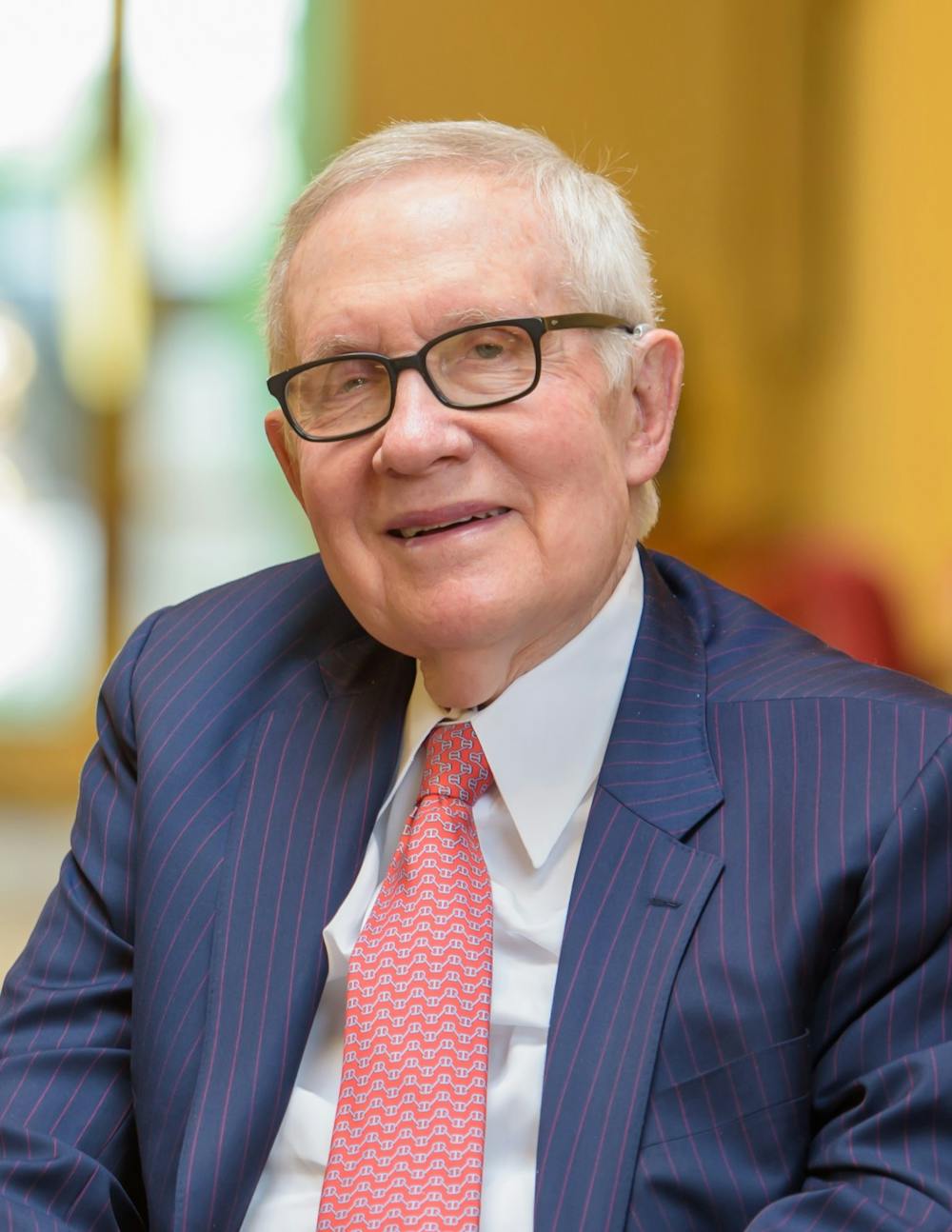Former Sen. Harry Reid (D-Nev.) spent 34 years representing Nevada in Congress and was one of the longest-serving Senate Majority Leaders from 2007–2015. Currently, Reid is a political operative, speaker, distinguished fellow at the University of Nevada Las Vegas William S. Boyd School of Law, and host of the Harry Reid Public Engagement Lecture Series at the University of Nevada, Reno. He spent time talking with students from the School of Public and International Affairs in a talk moderated by Professor of History and Public Affairs Julian Zelizer. Reid is visiting SPIA as the Conor D. Reilly Distinguished Visitor in Leadership and Governance.
Reid sat down with The Daily Princetonian on Monday, Nov. 1 to discuss his work as former Senate Majority Leader, the filibuster, and the current Build Back Better plan in Congress.
This interview transcript has been lightly edited for clarity and concision.
The Daily Princetonian: Senator, I want to begin with a pretty open question. What do you think, in your opinion, is the most important political issue facing the United States today?
Harry Reid: Climate change.
DP: Could you elaborate a little bit on that?
HR: I think that the number one issue facing the world is climate change. We’ve got to get control of the climate and reduce fossil fuels, coal, gas, and [increase] renewable energy to save the planet.
DP: Senator Reid, you were one of the longest serving majority leaders in the history of the Senate. What do you consider to be the most memorable or notable accomplishment of your time serving as the Senate Majority Leader?
HR: Passing the Affordable Care Act on Christmas Eve. It was the first time we met on Christmas Eve in 150 years. It really changed the world. The Affordable Care Act has been great for America and great for the world.
DP: What is your opinion on the current work in Congress surrounding President Biden’s Build Back Better plan, and do you think it will pass the Senate?
HR: I think the Senate is going to pass it: the infrastructure bill and the Build Back Better plan. I’m confident that both bills will pass. [Speaker of the House] Nancy Pelosi, she should get it through in the next few days. She does a great job in the House. As soon as we get it through the House, we should move on it in the Senate.
DP: You mentioned that you believe climate change is one of the most important political issues facing the United States and the world. To what extent would you support the extension of the Build Back Better plan to include components of the Green New Deal, which was proposed by members of Congress several years ago?

HR: I think that the Build Back Better plan is something that’s easy to pass and the Green New Deal is something we’ll need to keep on looking at. It had a lot of great points, and we need to refine it before we sign onto it.
DP: We will soon be closing out Biden’s first year serving as president. What do you think his administration has been successful at, and what do you think they could have done better?
HR: I think Joe Biden has been a very good president. He spent 36 years in the Senate and was vice president. I think he’s done a great job as president. And I have no criticism of him.
DP: Given your experience in the Senate, do you support the elimination or reform of the filibuster? And if so, in what ways?
HR: The sooner we get rid of the filibuster, the better off the country will be. I’m a big proponent of getting rid of the filibuster, simply because it’s not a part of the Constitution … We should get rid of it.
DP: Do you see this as a realistic possibility within the next several years, or do you think it’s more of a long term issue?
HR: Yes, I do. You cannot have a country where one senator can hold up the entire process of Congress. So my answer is yes. I think it’ll be done, and I think it’ll be done soon.
DP: What advice do you have for students at Princeton or other universities who are interested in working in government or other policy organizations?
HR: I think that there’s so many jobs and opportunities in public service, so many different things you can do. You could go up to elected office, you can work on campaigns, you can go work in Congressmen’s offices, the mayor’s office, legislators’ offices. Just get involved. That’s the main point. Get involved, now.
DP: Wonderful. Well, thank you so much for talking to us today!
Bailey Glenetske is a news contributor for the ‘Prince.’ She can be reached at baileyglenetske@princeton.edu or @bailey.glenetske on Instagram.








